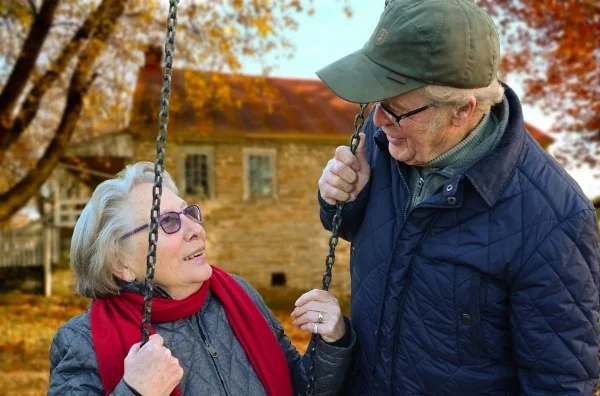You know what they say: Relationships may come and go, but friendships never will.
Read MoreIf you’re looking for more queer friends, you’re not alone! Read on for six ways to make LGBTQ+ friends.
Read MoreMove over dating, the scariest part of adulthood isn’t finding love, it’s making new friends!
Read MoreUnderstanding what feels creepy and why is, then, both protective and prescriptive. It can help you recognize when someone is communicating with you in an inappropriate way and help you understand how your actions may have impacted others in the past. Let’s hash it out.
Read MoreThe good news is that there are actionable steps you can take to build better relationships with the people in your life. As the old adage goes, make new friends but keep the old. Read on for tips on how to keep the spark alive.
Read MoreYou started a new job. You’re going to school. You needed a change of pace. Whatever the reason, you’re embarking on the next chapter of your life in a new and exciting place. All you need now are some friends to celebrate with!
Read MoreI’ve seen a lot of content about how to be charming, and a lot of it is based in fooling people or creating power dynamics where others feel like they’re below you in some way. That may “work” in the short term (for various definitions of “work”), but I think that at best, they lead to unsatisfying interactions for all people involved. And at worst, those strategies for being charming can lead to abusive dynamics.
So what can you do instead? Here are some tips for being charming in a way that’ll actually feel good for both you and the people you’re talking to.
Read MoreWe’ve already talked about how to know it’s time for a friend break-up, but how do you know that someone would make a good friend? Here are four “green flags” that suggest you might want to keep someone in your life.
Read MoreMaking friends as an adult can be rough. Even as an extrovert with a lengthy list of hobbies and interests, it took me several years of living in Boston to find a group of friends I jibed with. Along the way, I tried everything from meetups to going to any local event that even tangentially related to any of my interests— I even joined a craft beer club for several years to try to meet new people. I didn’t even like beer!
Along the way, I learned what sort of stuff does— and doesn’t— actually work for making new friends. Here are some tips.
Read MoreWhat do the following have in common?
- A “define the relationship” conversation with a crush
- Mentioning to your roommate that you never check your Facebook messages
- Telling your friend that the way he acts when he’s angry is scary to you
We’ve all been there. You’re at a party, and somebody asks you a small talk question that you’re afraid will beget more small talk and before you know it, you’re thirty minutes deep into a discussion about traffic patterns in your local area. Whether the question that somebody is asking you is, “Where are you from?” Or, “Wasn’t the traffic getting here awful?” You can prevent your conversation from slipping into a night of small talk by responding the following way:
Read MoreHave you ever felt comfortable telling something intimate to your hair stylist or bartender or ride-share driver, and then finding yourself feeling warm toward them, and perhaps inclined to tip more? Have you ever developed strong feelings for someone you were dating in a low-stakes context, like someone you knew you didn’t want to be with long-term? Then you are likely familiar with what I’ve deemed “the vulnerability paradox.” According to the vulnerability paradox, a pattern I’ve noticed in myself and others, it’s often easier to open up to those we are not relatively close to, yet, the very act of opening up brings us closer.
Read MoreWe'll cut to the chase. It’s boundaries, or more specifically, setting boundaries liberally and respecting them consistently.
Surprised? Think about it this way. Boundaries come on a spectrum, which looks different for each person-- there are smaller boundaries, which might look like, “Please lower your voice; my roommates are sleeping” and bigger boundaries, which might be more like, “Please don’t come to my house again.”
What a lot of folks don’t realize is that setting and respecting smaller boundaries are the single best way to avoid the big boundaries.
Imagine you’re hanging out with a friend.
You’ve been chatting for a bit, and they reveal something more vulnerable about themselves than they usually discuss with you. Maybe it’s admitting that they feel lonely at work, or maybe it’s talking about their history with depression. Whatever it is, it’s a level or two deeper than your usual conversations.
How do you respond?
Read More













